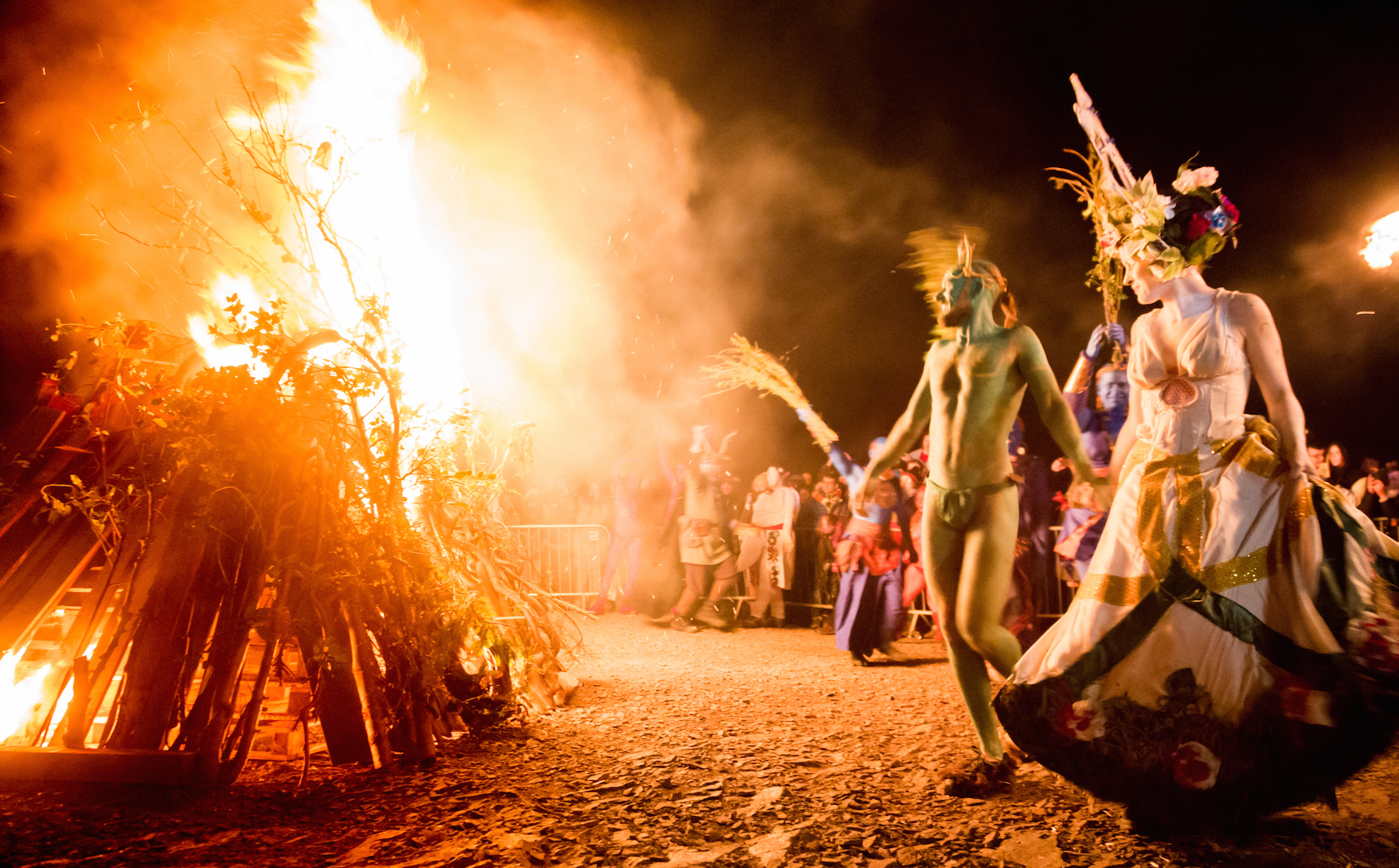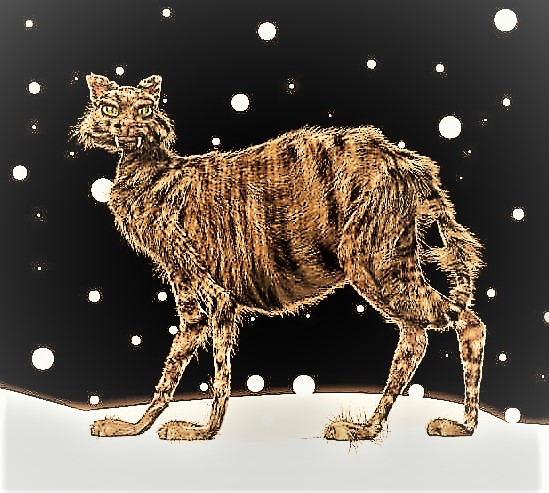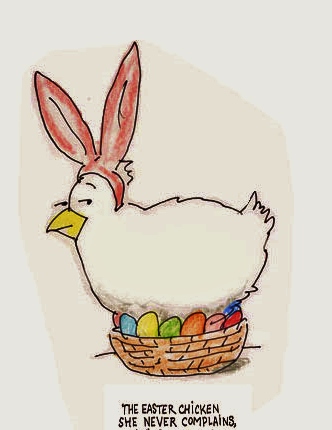May Day (May 1) marks the return of Spring in the Northern Hemisphere, with origins in ancient agricultural rituals to ensure fertility, handed down from the Egyptians, Greeks, and Romans. Later permutations included the Celtic festival of Beltane and Germanic festival of Walpurgis Night. May Day falls exactly half a year from All Saints Day (November 1), and cross-quarter day with pagan overtones. Today, this ancient festival survives, including gathering wildflowers and decorating a May tree or Maypole, around which people dance, and some use it for political protest in association with International Workers Day.
Tag: pagan
Labor Taskmaster: The Yule Cat Monster of Iceland
Christmas legends make the freezing nights pass faster and the children – and laborers – behave. Iceland’s Jólakötturinn, or Yule Cat, warned lazy children would be eaten by a monster cat, which has roots hundreds of years back, and popularized by a poem by Johannes ur Kotlum.
Spring Equinox, the Eostre Bunny, and Other Wiccan Mysteries
Eostre – the Germanic goddess of dawn and fertility, whose name gives us the word Easter – must be pleased. Two millennia of Christianity, and she has yet to be displaced from our annual celebration of fecundity. Easter eggs, representing birth, nod to both pagan and Christian traditions.



